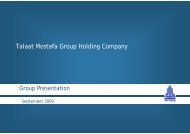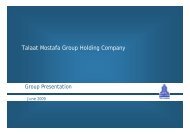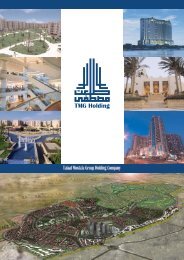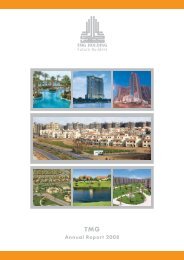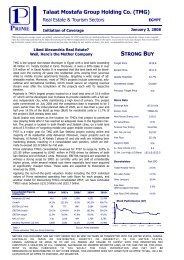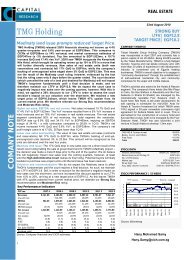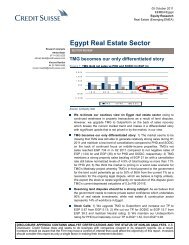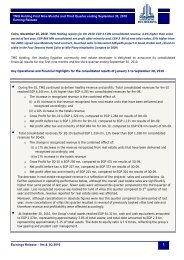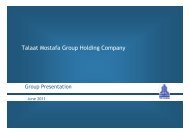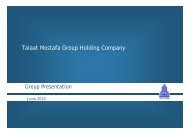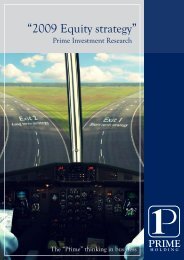Deutsche Bank - Egypt Real Estate - (6th of July 2010) - SODIC
Deutsche Bank - Egypt Real Estate - (6th of July 2010) - SODIC
Deutsche Bank - Egypt Real Estate - (6th of July 2010) - SODIC
Create successful ePaper yourself
Turn your PDF publications into a flip-book with our unique Google optimized e-Paper software.
5 <strong>July</strong> <strong>2010</strong> <strong>Real</strong> <strong>Estate</strong>, Construction and Building Materials <strong>Egypt</strong> <strong>Real</strong> <strong>Estate</strong>Putting regulatory risk intoperspectiveAmbiguous legal framework has heightened regulatory riskWe have looked in depth at the legal framework pertaining to the <strong>Egypt</strong>ian real estate sectorand attempted to address the regulatory issues that have captured investors’ attentionrecently:• A law issued in 1979 provided rights to NUCA (New Urban Communities Authority), agovernment entity, to sell land directly (without auction process) to investors/developers.• Another law was issued in 1998 (Law 89 <strong>of</strong> 1998) stipulating sale <strong>of</strong> land fromgovernment entities through an auction process.This new law led the administrative court to issue an adverse judgment on 22 nd June <strong>2010</strong>against TMG’s land acquisition process. This decision has put TMG’s flagship project,‘Madinaty’, in jeopardy.Madinaty judgement to set the benchmarkIn our view, the administrative court verdict against NUCA and the leading developer TMGhas increased risks on an otherwise attractive <strong>Egypt</strong>ian real estate story.<strong>Egypt</strong>ian developers have acquired their land bank through 3 channels: private owners,government entities (such as NUCA) and through government auction process. Thegovernment began land auction process in 2006 while in the same time developers havebeen able to acquire land from government entities through bilateral negotiations. We believeinvestors could see risks <strong>of</strong> potential new cases/negative news flow against developers whohave acquired land from the government. Our analysis suggests that TMG and <strong>SODIC</strong> haveacquired almost 95% <strong>of</strong> their land from government entities through the non auction process,as compared to 8% for PHD. Nevertheless, we estimate that c.61% <strong>of</strong> <strong>SODIC</strong>’s entirelandbank may not be at risk, as 55% was acquired before 1998 law (thus not at risk) andanother 5% was acquired through auction (also not at risk). While we see regulatoryambiguity as a risk we do not expect major cancellations <strong>of</strong> land agreements, as such ascenario would have significant economic damages, impact the government’s credibility andcould put <strong>of</strong>f foreign investors.We believe investors will closely monitor the Supreme Court judgement on TMG case (notime frame yet) as this should set the benchmark. Till then, we see legal overhang dominatingthe sector.<strong>Deutsche</strong> <strong>Bank</strong> AG/London Page 17



